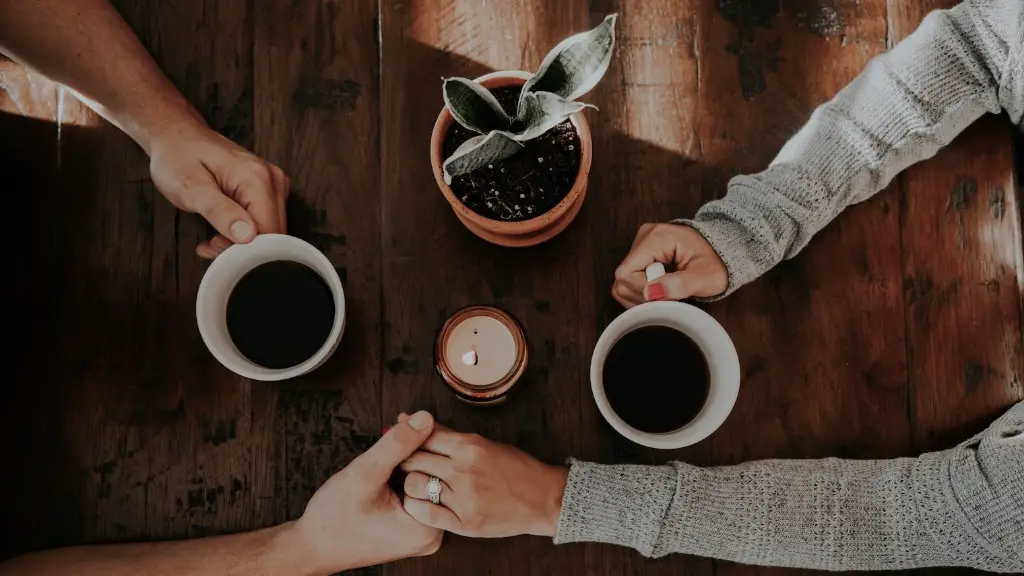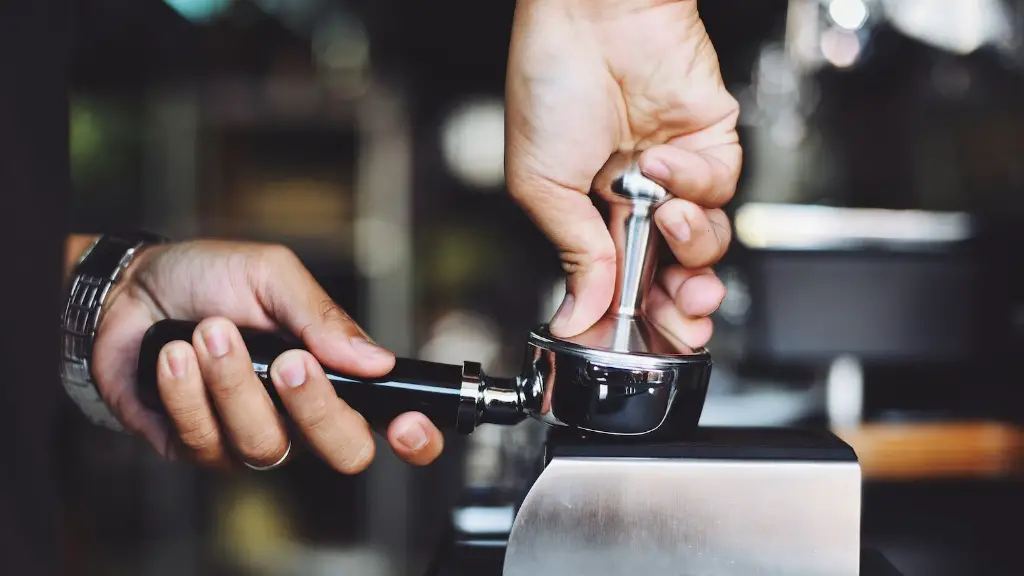Drinking coffee before bed is a controversial topic. Caffeine is a stimulant and can interfere with the body’s natural sleep cycles, however there are some benefits associated with drinking coffee close to bedtime. In this article, we will discuss the pros and cons of drinking coffee before bed, so that you can decide for yourself whether or not it is a good idea.
Reasons Why People Choose to Drink Coffee Before Bed
Drinking coffee before bed can be beneficial for some people, especially those who need a little extra energy for late-night activities. Coffee contains caffeine, which is a stimulant that helps to increase alertness and productivity. Additionally, coffee can help people feel more energized and motivated when they are feeling fatigued from their day-to-day routine. Additionally, drinking coffee can also help reduce stress and anxiety levels, as it releases dopamine and serotonin into the body – two neurotransmitters responsible for feelings of happiness and relaxation.
However, it is important to be aware that drinking coffee before bed can also have some drawbacks. The caffeine in coffee can interfere with sleep patterns, making it harder to fall asleep or stay asleep throughout the night. Additionally, drinking coffee late at night can disrupt the body’s natural circadian rhythms and cause restlessness during the night. Therefore, it is important to consider both the pros and cons of drinking coffee before bed before making a decision about whether or not it is right for you.
Ultimately, whether or not you choose to drink coffee before bed comes down to personal preference. If you find that drinking coffee late at night works for you then there is no reason why you should not enjoy a cup of joe before turning in for the evening. Just make sure that you are aware of the potential risks associated with consuming too much caffeine late at night so that you do not suffer any adverse effects while trying to get your shut-eye.
Sleep Quality and Caffeine Consumption
It is generally accepted that drinking coffee before bed is not recommended, as caffeine can disrupt sleep. Caffeine is a stimulant, and its effects can last for several hours. This means that if you drink coffee late in the evening, it can make it difficult to fall asleep and can also reduce the quality of your sleep. Poor sleep quality can lead to a range of physical and mental health problems. If you do choose to have coffee late in the evening, consider drinking a decaffeinated variety or drinking less caffeine overall. Additionally, avoiding caffeine for several hours before bedtime may help improve your sleep quality.
Health Risks of Consuming Coffee Before Bed
Coffee is a popular beverage, enjoyed by millions of people around the world. However, it is important to consider the potential health risks associated with drinking coffee before bed. Caffeine, the primary active ingredient in coffee, is a stimulant that can interfere with sleep and induce feelings of anxiety and restlessness. Consuming coffee close to bedtime can also affect metabolism and cause digestive issues such as nausea and heartburn. In addition, caffeine can increase heart rate and blood pressure.
Coffee consumption before bed has been linked to poor sleep quality. Studies have shown that people who drink coffee late at night are more likely to experience longer periods of wakefulness during sleep and reduced total sleep duration. This can lead to fatigue during the day, irritability, difficulty concentrating, and an overall decrease in quality of life.
Ultimately, while drinking coffee before bed may not be dangerous for everyone, it is important to consider the potential health risks associated with this habit. People who are sensitive to caffeine or struggle with insomnia should avoid drinking coffee close to bedtime in order to improve their sleep quality and overall health.
Tips to Avoid Drinking Coffee at Night
Caffeine is a stimulant, and its effects can last for several hours. Drinking coffee late in the day can make it difficult to fall asleep and lead to poor sleep quality. To prevent this, it is best to stop drinking coffee several hours before bedtime. This will allow your body time to process the caffeine before you go to sleep.
It is also important to be aware of how much caffeine you are consuming throughout the day. Caffeine sensitivity varies from person to person, so it is important to find out how much caffeine your body can handle without negatively affecting your sleep. If you are sensitive to caffeine, it may be best to reduce or eliminate caffeine consumption after lunchtime.
Drinking decaffeinated drinks in the evening can also help reduce your chances of having difficulties falling asleep. Herbal teas like chamomile, lemon balm, or valerian root tea can help relax your body and make it easier for you to drift off into a peaceful night’s rest. Additionally, avoiding any sort of food or drinks with sugar in them before bedtime may help promote better sleep.
Finally, having a regular bedtime routine can help create healthy habits that will set you up for success in getting a good night’s sleep. Taking time before bed for relaxation activities like reading or meditating can help signal your body that it’s time for bed and prepare you for a restful night’s sleep without the need for caffeine.
Alternatives to Drinking Coffee Before Bedtime
For those looking for a way to get an energy boost at night without drinking coffee, there are many other options available. Herbal teas such as chamomile or peppermint are a great way to relax and get ready for bed. A warm cup of non-caffeinated tea can help you wind down from the day and give you a sense of calm before going to sleep. Other drinks like warm milk or almond milk can also help you relax and get ready for sleep. If you’re looking for an energy boost, try exercising earlier in the day or taking a walk around the block before bedtime. This will help reduce stress and tire your body out so that you can easily fall asleep when it’s time.
Signs You Should Avoid Drinking Coffee Before Bed
If you’re a coffee drinker, you may be wondering if it’s bad to drink coffee before bed. While there are some benefits of caffeine, drinking coffee late in the day can actually lead to problems falling asleep and staying asleep. Here are some signs that indicate it’s time to avoid drinking coffee before bed:
1. You have difficulty falling asleep or feel restless throughout the night.
2. You wake up feeling groggy and tired, despite sleeping for a long period of time.
3. You find yourself craving more caffeine throughout the day in order to stay alert.
4. You experience irritability, headaches, or other physical symptoms due to lack of sleep.
Although drinking coffee may be one of your favorite habits, it is important to pay attention to how your body responds to caffeine and adjust your habits accordingly. If you notice any of these signs after drinking coffee late in the day, try cutting down on your intake or avoid drinking it altogether before bedtime for a better night’s rest.
To Sum it All Up
Drinking coffee before bed may not be the best option for those seeking a good night’s sleep. Caffeine can interfere with the body’s natural sleep cycle and make it harder to fall asleep and stay asleep. However, if you are able to drink coffee before bed without it affecting your sleep, then there is no harm in doing so. At the end of the day, it is all about finding what works best for you.





